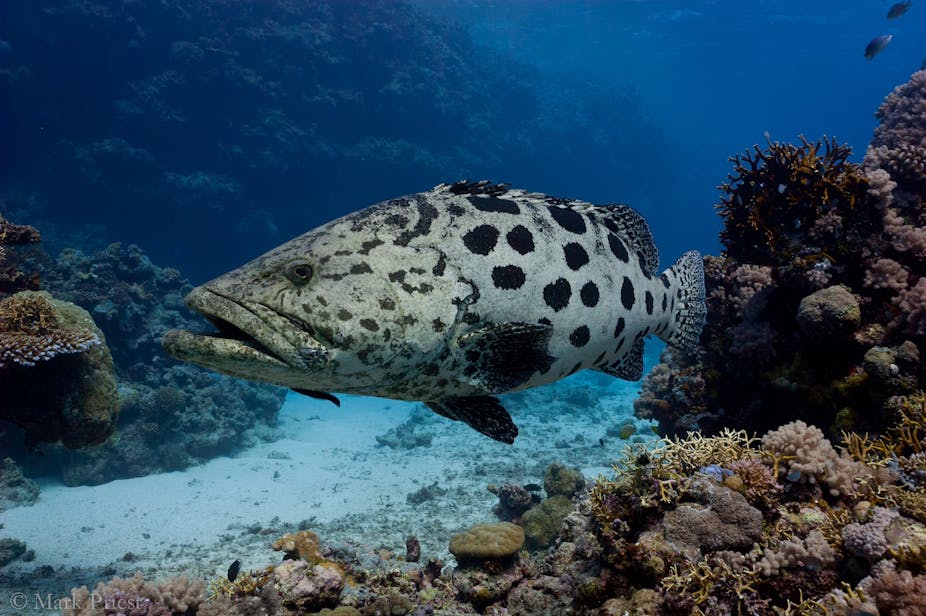Tighter bag limits for fishing could be the key to ocean conservation, according to new research showing that limiting fishing across entire regions can offer better protection than using marine reserves.
Our study shows that while marine reserves can protect small areas, they don’t offer much protection for the areas outside their boundaries. In contrast, limiting fishing across entire regions can give more widespread protection.
This suggests that the best approach might be to combine strict bag limits with a network of marine reserves. That way, we can conserve healthy ecosystems while still allowing fishers to make a living.
The value of healthy ecosystems
Marine ecosystems are important for our economy and our society. The Great Barrier Reef, for instance, contributes some A$6 billion a year to the Australian economy and supports 63,000 jobs, including tourism, charter fishing and commercial fisheries. If we don’t conserve the environment, we may jeopardise fisheries and lose the attraction to tourists.
It is therefore in the interest of both conservation and fisheries to prevent fish populations from being diminished. Abundant fish help to maintain the health of ecosystems and ultimately, healthier ecosystems will also be more productive for fisheries.
Reserves and rules
On the Great Barrier Reef, vulnerable fish species are protected both in marine reserves and by bag limits. For instance, recreational fishing of potato rock cod is completely banned and there is a bag limit on parrotfish of five per species.
But crucially, as well as protecting vulnerable species themselves, bag limits may also help to conserve the health of the entire ecosystem.
Fish like rock cod and parrotfish are important for healthy coral reefs. The health of the whole ecosystem can be endangered if we don’t have enough of these types of fish. For instance, parrotfish eat algae that can otherwise overgrow the coral homes of fish, and rock cod can scare away smaller predators. Without rock cod, the small predators can eat the juveniles of many types of fish.
Australia’s Great Barrier Reef is often viewed overseas as a leading example of marine reserves. It has good coverage of no-fishing zones, which help to protect important types of fish. Elsewhere, some Caribbean countries and islands (including Bonaire, Belize, and Turks and Caicos) have recognised the importance of parrotfish and have protected them from fishing. Countries like Australia should consider these measures too.
A better way?
While marine reserves are no doubt important, the protection of fish in one area can lead to overfishing in others. Is there a way to safeguard ecosystems more broadly?
By modelling the effects of different conservation strategies, we found that the best way to protect large areas of the seascape is by managing fishing directly, through bag limits such as those imposed on parrotfish. For instance, rock cod have little protection from fishing across most tropical countries, including in the Caribbean Sea and Southeast Asia. Stricter regulations and marine reserves would both help to conserve these important species.
Tighter bag limits could also help to remove conflicts between conservationists and fishers, particularly over the size of marine parks. Protecting small areas instead of big areas means fishers don’t lose extensive fishing grounds, and we have some places with abundant fish populations. Big reserves can mean people fish harder in other places.
Limits on fishing, like bag limits or restricting fishing quotas, would mean fish populations will benefit, even outside of reserves. Combining marine reserves with limits on fishing can be an effective solution for conservation and fisheries.
Our study suggests that we don’t have to limit fishing all that much to create widespread benefits for the ecosystem – people can still make a living and we can still have profitable fisheries.
Choosing the right conservation strategy can minimise the conflict between conservation and fishing goals. After all, in the long term, the most productive fisheries are the ones in the healthiest ecosystems.

